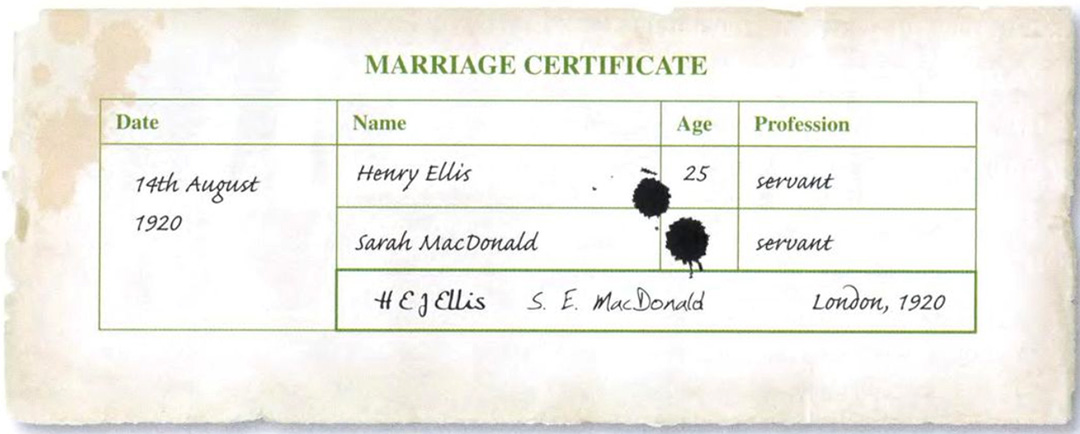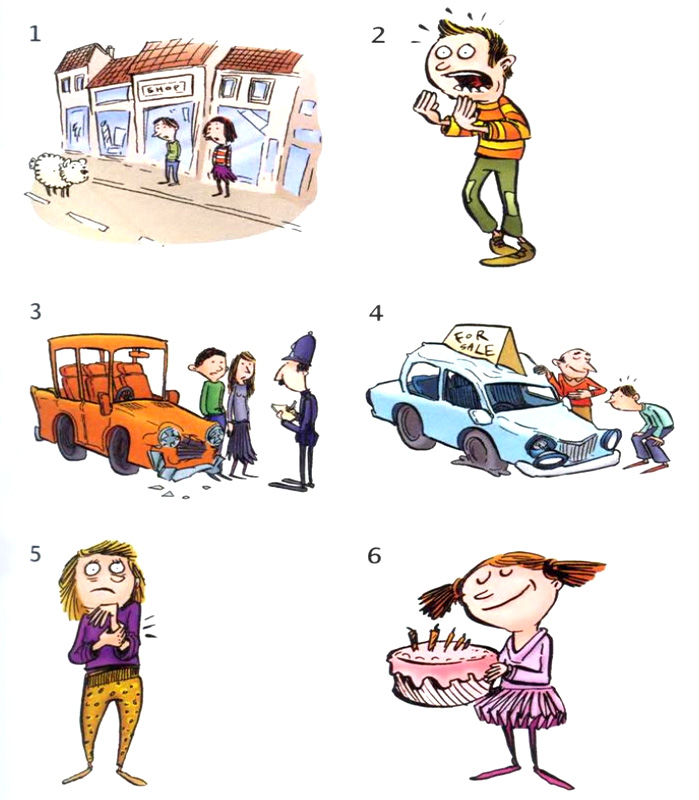A. Match phrases a-g to the correct spaces in the text.
Easter Island, 3,600 km off the coast of Chile in the Pacific Ocean, is very far from land. Now it is a small island with few people or trees, but at one time a lot of people lived there. Scientists believe the original inhabitants 1……c…… by accident. Around 100 people 2……… .
But then the number of inhabitants increased too quickly. Scientists are all agreed that the inhabitants 3……… on the island and finally all died.
The Easter Island statues are famous but nobody knows why they are there or why there are so many. The statues 4………, or Easter Island 5……… . The statues are very large and very heave, so they 6……… . Scientists still do not know how the inhabitants 7……… .
a must have used up all the food
b could have been part of a much bigger island
c may have discovered the island
d might have done this
e might have been gods
f may have landed there
g can’t have been easy to move
Answers
2 f 3 a 4 e 5 b 6 g 7 d
B. Match sentences 1-8 with what could or might have happened but didn’t (a-h).
1 The weather was terrible at the beach.
2 I missed the goal.
3 I didn’t study for my exam.
4 We didn’t leave home until midday.
5 She gave up tennis when she was 12.
6 She’s been talking on the phone all morning.
7 She didn’t take her medicine.
8 I didn’t go to drama school.
a She might have been a good player.
b I could have been an actor.
c We could have gone swimming.
d We might have won the match.
e She could have done her homework by now.
f I could have passed it.
g She might have got better more quickly.
h We could have got there earlier.
Answers
1 c 2 d 3 f 4 h 5 a 6 e 7 g 8 b
C. Complete the dialogues using must have + past participle and the verb phrases from the box.
|
be difficult be very frightening go out look silly make a mistake pass his test sleep very well |
1 A: My parents got divorced last year.
B: That must have been difficult for you.
2 A: He’s driving the car alone.
B: ……………………………………………….
3 A: I put my shirt on the wrong way.
B: ……………………………………………….
4 A: The man in the shop gave me the wrong money.
B: ……………………………………………….
5 A: I was out in the boat when it started to fill with water.
B: ……………………………………………….
6 A: My parents are not at home.
B: ……………………………………………….
7 A: I didn’t hear the thunder last night.
B: ……………………………………………….
Answers
2 He must have passed his test.
3 You must have looked silly.
4 He must have a mistake.
5 That must have been very frightening.
6 They must have gone out.
7 You must have slept very well.
D. Look at the marriage certificate and check if statements 1-7 are possible or not. Write sentences using must have, can’t have, couldn’t have, may have or might have + past participle.

1 Henry Ellis was born in London.
He might have been born in London – we don’t know.
2 He was a teacher all his life.
He can’t have been a teacher all his life – he was a servant in 1920.
3 He got married in London.
…………………………………………………….
4 He was born in 1900.
…………………………………………………….
5 He didn’t have any children.
…………………………………………………….
6 His wife was older than him.
…………………………………………………….
7 Henry and Sarah met when they were working.
…………………………………………………….
Answers
3 He must have got married in London.
4 He can’t have been born in 1900. (He was 25 in 1920.)
5 He may / might not have had any children. (We don’t know.)
6 Sarah may / might have been older than him. (We can’t read this.)
7 They may / might have met while they were working. (They were both servants.)
E. Complete the sentences about the pictures, using the verbs in brackets and must have, can’t have, might have or may have.

1 It ……must have come…… from the farm. (come)
2 He ……………………………… a ghost. (see)
3 They ……………………………… an accident. (have)
4 You ……………………………… it very well. (look after)
5 She ……………………………… her arm. (break)
6 She ……………………………… it by herself. (make)
Answers
2 may / might have seen
3 must have had
4 can’t have looked after
5 may / might have broken
6 can’t have made
F. Rewrite each sentence so that it has a similar meaning, using a modal verb from this unit.
1 It certainly wasn’t an easy decision.
It can’t / couldn’t have been an easy decision.
2 I’m sure you were a good friend of John’s.
…………………………………………………
3 It is possible she did not understand.
…………………………………………………
4 They were lucky the accident wasn’t a lot worse.
…………………………………………………
5 She didn’t play very well – perhaps she was nervous.
…………………………………………………
6 I certainly didn’t imagine it.
…………………………………………………
7 Maybe you didn’t hear what he said.
…………………………………………………
8 Something definitely went wrong.
…………………………………………………
Answers
2 You must have been a good friend of John’s.
3 She may / might not have understood.
4 The accident could / might have been a lot worse.
5 She didn’t play very well – she may / might have been nervous.
6 I can’t / couldn’t have imagined it.
7 You may / might not have heard what he said.
8 Something must have gone wrong.
G. You get home and your teacher is sitting in the kitchen talking to your mum. Write sentences using the modals in brackets.
1 (can’t have) ……My mum can’t have invited her / him. ……
2 (may have) ……………………………………………………….
3 (may not have) ……………………………………………………….
4 (might have) ……………………………………………………….
5 (might not have) ……………………………………………………….
6 (must have) ……………………………………………………….
Answers
your own answers
H. Circle the correct option.
1 She may have ………… all about it.
a forget b forgot c forgotten
2 Her car is not there. She ………… have come home last night.
a may b might c can’t
3 She drank a whole bottle of water. She ………… have been thirsty.
a might b must c couldn’t
4 The scientists ………… have found a cure, but they need to do more tests.
a may b must c can’t
5 The man may not have ………… the truth.
a know b knowing c known
Answers
1 c 2 c 3 b 4 a 5 c
